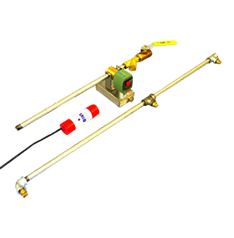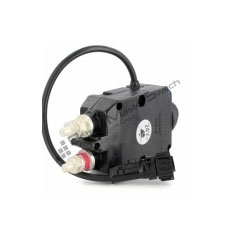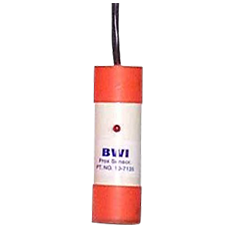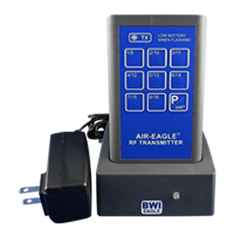Electrical components are the backbone of modern devices and systems. They ensure smooth operations, safety, and control in various applications. Among these essential components are Battery Disconnect Switches, Speed Sensors, and Wireless Remote Controls. In this article, we’ll delve into their functionalities, uses, and factors to consider when purchasing them.
1. Battery Disconnect Switches
What is a Battery Disconnect Switch?
A Battery Disconnect Switch is a device designed to isolate a vehicle’s or machine’s battery from its electrical system. It serves as a master switch, enabling users to safely cut off the power supply when the vehicle or equipment is not in use. These switches are critical for energy conservation, safety, and maintenance.
Uses of Battery Disconnect Switches
Battery Disconnect Switches find applications across multiple industries and scenarios:
- Automotive and Marine Applications: Prevent battery drain during long periods of inactivity.
- Safety in Maintenance: Protect technicians from accidental electrical shocks while working on vehicles or equipment.
- Anti-Theft Measures: Some switches act as a deterrent by disabling the vehicle’s electrical system, making it harder to steal.
- Energy Conservation: In RVs, boats, and other setups, they prevent unnecessary battery discharge.
Types of Battery Disconnect Switches
- Manual Disconnect Switches: Require a physical turn of a knob or lever.
- Automatic Disconnect Switches: Triggered by specific conditions, such as a voltage drop.
- Remote-Controlled Disconnect Switches: Operated wirelessly, offering convenience.
Where to Buy Battery Disconnect Switches?
For high-quality Battery Disconnect Switches, consider these sources:
- Specialized Automotive Stores: Retailers like AutoZone or NAPA Auto Parts carry reliable options.
- Marine Supply Shops: These stores cater to boats and other marine vehicles.
- Online Platforms: Websites like Amazon, eBay, and specialized suppliers like Del City or Blue Sea Systems offer a wide variety.
2. Speed Sensors
What is a Speed Sensor?
A Speed Sensor measures the speed of a rotating object, typically a vehicle’s wheels or engine components. They provide real-time data to onboard systems, ensuring optimal performance and safety.
Uses of Speed Sensors
Speed Sensors are integral to modern vehicles and machinery. Some key applications include:
- Automotive Systems: Provide speed data to anti-lock braking systems (ABS), traction control, and engine management systems.
- Industrial Equipment: Monitor the speed of conveyor belts, motors, and other rotating machinery.
- Bicycles and E-Scooters: Measure and display speed for performance tracking.
- Aviation and Marine Systems: Detect speed for navigation and system optimization.
Types of Speed Sensors
- Wheel Speed Sensors: Used in vehicles to monitor wheel rotation and support ABS systems.
- Magnetic Sensors: Detect changes in magnetic fields to calculate speed.
- Hall Effect Sensors: Utilize the Hall effect principle to measure velocity in engines and other rotating components.
Where to Buy Speed Sensors?
Speed Sensors are widely available, but sourcing them from a reputable supplier is essential for reliability:
- Automotive Dealerships: Genuine sensors tailored for specific vehicle models.
- Industrial Supply Stores: Ideal for sensors used in machinery.
- Online Retailers: Sites like RockAuto, Amazon, and Industrial Sensors Online offer diverse options with customer reviews.
3. Wireless Remote Controls
What is a Wireless Remote Control?
A Wireless Remote Control is a device that enables users to operate machines, systems, or appliances from a distance without direct contact. It communicates with a receiver through radio waves, infrared signals, or Bluetooth technology.
Uses of Wireless Remote Controls
Wireless Remote Controls enhance convenience and functionality in various settings:
- Home Automation: Control lights, appliances, and entertainment systems remotely.
- Industrial Equipment: Operate cranes, forklifts, and other machinery from a safe distance.
- Vehicle Applications: Manage winches, alarms, and other accessories.
- Medical Devices: Enable remote operation of hospital beds and equipment for patient convenience.
Types of Wireless Remote Controls
- Infrared Remote Controls: Commonly used in TVs and air conditioners.
- Radio Frequency (RF) Remote Controls: Offer longer ranges and are less prone to interference.
- Bluetooth Remote Controls: Ideal for pairing with smartphones and modern devices.
Where to Buy Wireless Remote Controls?
Choose retailers that specialize in your specific application:
- Home Automation Stores: Brands like Logitech or smart home platforms like Philips Hue offer high-tech options.
- Electronics Retailers: Best Buy, Fry’s Electronics, and similar stores carry versatile remotes.
- Industrial Equipment Suppliers: Companies like HBC Radiomatic or Tele Radio focus on heavy-duty remotes.
Factors to Consider When Buying These Components
When purchasing Battery Disconnect Switches, Speed Sensors, or Wireless Remote Controls, consider the following:
- Compatibility: Ensure the component suits your specific vehicle, machine, or system.
- Quality and Durability: Look for products from reputable manufacturers with robust build quality.
- Ease of Installation: Some components require professional installation, while others are DIY-friendly.
- Technical Support: Opt for suppliers offering customer support and warranties.
- Reviews and Ratings: Online feedback can provide insights into product performance and reliability.
Battery Disconnect Switches, Speed Sensors, and Wireless Remote Controls are indispensable components that enhance safety, efficiency, and convenience across various applications. Whether you’re looking to maintain your vehicle, improve industrial operations, or embrace smart home technology, choosing the right components is critical.
When purchasing, prioritize quality, compatibility, and trusted suppliers. With the right selection, these electrical components will deliver exceptional performance and reliability for years to come.
For all your needs, explore specialized stores or trusted online retailers to find the perfect match for your requirements.



